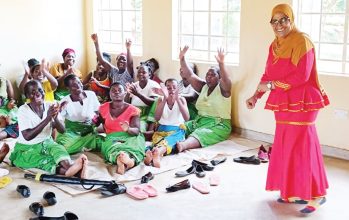Political parties commit to violence-free campaign
As Malawi awaits the official opening of campaign period in readiness for the 2014 Tripartite Elections, political parties in Nsanje have signed a memorandum of understanding obliging them to desist from using inflammatory language to prevent conflicts.
The agreement was signed last weekend at a meeting organised by National Initiative for Civic Education (Nice) Trust to provide a platform where politicians could devise measures for achieving peaceful elections in the district.
During the discussions, it was observed that politicians at the constituency level are committed to conducting civilised campaigns that are in line with principles of democracy, citizen participation and tolerance.
However, the politicians comprising a representative of women, youth and men from People’s Party (PP), Malawi Congress Party (MCP), United Democratic Front (UDF) and Democratic Progressive Party (DPP) faulted their leaders at the national level as being responsible for causing havoc due to overzealousness.
Also present at the meeting were aspiring candidates, law enforcement agencies, members of the multiparty liaison committee, organisations accredited to conduct civic and voter education, traditional leaders, faith and leaders of various development committees.
Traditional Authority Mlolo said violence-free campaigns are fundamental to the achievement of peaceful tripartite elections next year.
He commended the political players for committing themselves to desisting from politics of castigation and inflammatory language during the whole campaign period.
Nsanje district civic education officer, Kondwani Malunga, said Nice is organising such meetings as part of its contribution towards the promotion and entrenchment of democracy and good governance in the country.
Malunga said his organisation is holding meetings to sensitise people to the need to maintain peace and tranquillity during the campaign period and promote peaceful coexistence and social cohesion among Malawians.
“I’m quite impressed with the outcome of the meeting because delegates critically analysed possible causes of conflicts during registration, nomination of candidates, identification of candidates during primary elections, verification of names in the voters roll, campaign period, voting process, vote counting and announcement of results. Finally, they devised mechanisms for averting violence in case of differences,” he said.
The discussions were held with funding from European Union (EU).





